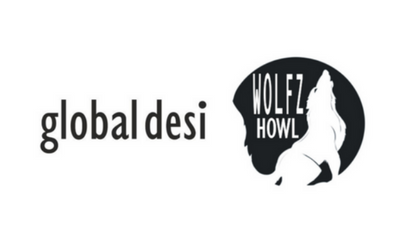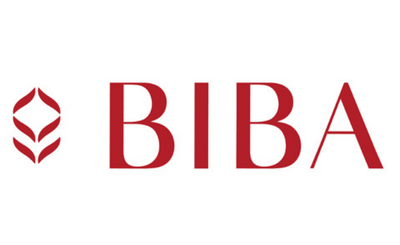Application of virtual reality in tourism marketing strategy
Virtual reality is a handy marketing tool in the travel industry. As a field that opens up a sizeable creative space, tourism includes marketing projects based on virtual reality.
Marketing is making the most of technological opportunities to drive engagement and build relationships. Specifically, VR marketing enhances the help of businesses in reaching their target audience with exciting and impactful media.
Potential customers in the travel industry are looking for a compelling experience. Therefore, when brands can share the experience they provide in communication, they increase their chances of being chosen by the public.
Why is virtual reality used in marketing?
In today’s world, people are used to virtual communication, and virtual reality takes touch even further.
Brands have integrated VR into their digital marketing strategies. Indeed, it’s a great idea when virtual reality brings the experience. It should be noted that this is what consumers expect from brands to attract and become customers, especially in the travel sector.
The use of virtual reality in tourism marketing strategy allows companies to be more self-explanatory, get their message more clearly, build strong relationships and Increase sales and brand awareness. The advantage of virtual reality in marketing comes from a more accessible, so to speak, digital experience that represents the physical experience. Therefore, VR technology is far beyond the confines of the gaming industry, and it is expanding its presence and impact in all sectors, like the wind.
How can a travel and tour company use virtual reality to improve their business?
A travel and tour company can promote and showcase its products and services using 360-degree video. Rich experiences help audiences connect with brands.
While sales-driven communication still works, people tend to engage more with experiential approaches. Therefore, travel and tour companies need to be as creative as possible to reach more people and get a return on investment for their marketing efforts. Here are some ideas for implementing virtual reality in your travel marketing strategy. With this article, we hope to inspire you and help you improve your business with virtual reality.
Virtual reality hotel tour Virtual wine tasting Virtual tour of travel destination
Virtual city tour A virtual tour of museums and galleries Virtual adventure and more Virtual reality hotel tour One of the most common use cases for virtual reality in travel is creating virtual hotel tours. You can invite potential guests to a virtual experience showcasing your rooms, amenities, and location.
You can easily take 360-degree photos or videos and add them to your website. As a result, your visitors will have an immersive experience and feel like they are in your hotel. Enhance your visuals with narrative and make them watch the video as if they were the main character.
This is an excellent example of a virtual reality hotel tour. The video is perfectly displayed even on a standard screen because it is high quality.
Virtual wine tasting
You can even offer wine tastings in the comfort of your audience’s homes for a more immersive experience. You can create VR videos for your winery and restaurant with informative guides about the wines they are testing.
So people will see the grapes in the vineyard, walk around your beautiful site and learn about your wines. As a result, you will provide them with a digital experience that is far more valuable than a simple wine tasting.
These wine-tasting sessions are ideal for the wineries and for promoting wine regions, retailers and wine clubs. It’s a pretty innovative use of virtual reality in travel.
Virtual tour of travel destination
Travellers are starting their vlogs because people love to watch travel videos! You can also take advantage of this growing trend and create virtual tours of travel destinations. You can be a travel agency or a restaurant on the beach. No matter your business in the travel industry, you can benefit from virtual reality in your marketing by creating virtual tours.
Make sure to include your business in the video organically instead of turning it into an ad. Well, a 360-degree video ad is also a good idea, but if you are filming a video of a tour of a tourist site, we recommend that you join the corresponding game. Guided virtual tour of the city
An informative, fun and engaging virtual city tour. Instead of just capturing video from the streets of your city, try to create a more valuable experience with the help of a local guide.
You can showcase the city’s sights and landmarks in the video, and your guide can tell you about the historical and cultural background, just like walking around the city with a guide.
Take this video as an example. Viewers feel like wandering around London and learning eye-catching information from the guide. Virtual tour of museums and galleries
It has been quite popular since the beginning of the pandemic. When people are locked at home, they quench their thirst for art by visiting virtual museums. But it seems he will stay longer.
Google has a massive collection of virtual museums in Google Arts & Culture. For example, it is possible to visit the British Museum in London, the Van Gogh Museum in Amsterdam, the Guggenheim in New York and many others. If you run a museum or art gallery, you can take inspiration from this to create your own virtual space.
Virtual adventure and other adventures
Virtual reality can also share glimpses of adventure. If you sell adventure travel, you can create magnetic VR content to engage your audience. Videos of real adventurers or animated videos can become your next great marketing vehicle.
When people feel the adrenaline rush through their bodies even just watching a 360-degree video, they’ll be thrilled to reserve a spot on your next tour.
Technology in travel opens up more space for imagination and creativity. Virtual reality is a great option to use to reach more people. If you have questions about applying virtual reality in your travel brand marketing strategy, you can seek help from the best travel and tourism marketing agencies in the United States.






